Sustainable management of fisheries, aquaculture, and eco-tourism plays a crucial role in supporting local livelihoods and preserving marine ecosystems. Universitas Gadjah Mada (UGM) actively contributes to this cause by offering programmes on sustainable fisheries, aquaculture, and tourism management to local and national communities. These programmes include counseling on fishery product quality and safety, eco-tourism socialization, fisheries resource development, and aquaculture health management. By combining practical training, stakeholder engagement, and innovative technologies, UGM empowers communities to adopt sustainable practices, enhance biodiversity, and improve economic opportunities while addressing global challenges in fisheries and marine resource management.
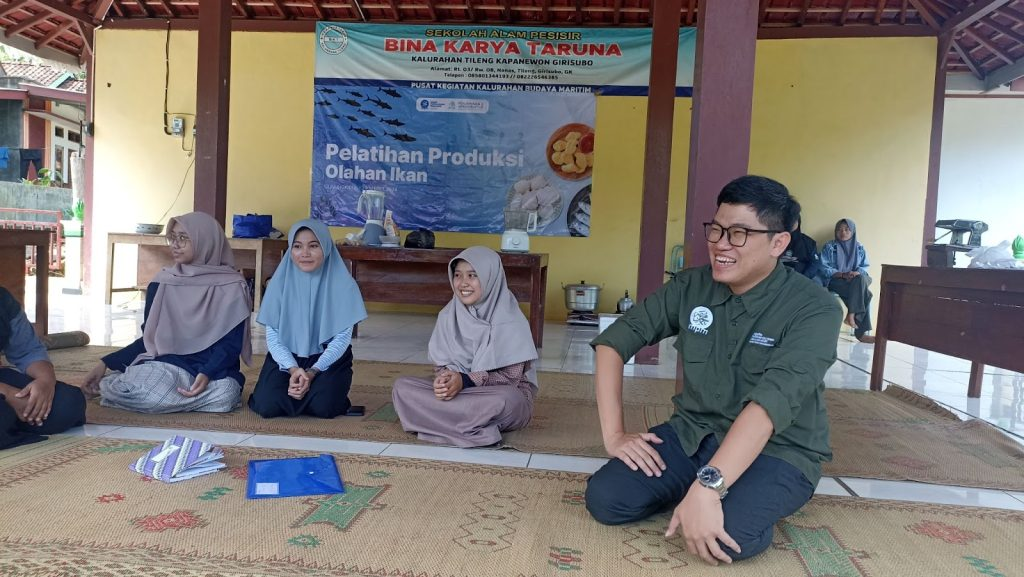
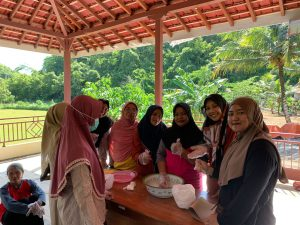
The UGM student community service program is a mandatory program for its undergraduate degree students which aims to address societal challenges through a multidisciplinary approach and local community empowerment. Each year, UGM deploys thousands of students to various regions across Indonesia, where they collaborate with local communities to develop and implement programs that enhance health, science, engineering, and humanities sectors. Among the sectors, several groups have been tasked with tackling sustainable fisheries, aquaculture, and eco-tourism to support the livelihoods and protect marine ecosystems of local communities.
In the Banda Islands of Central Maluku, one of UGM’s community service groups conducted community outreach activities that focused on the fisheries sector. The group involved the Department of Fisheries & Marine Affairs of Maluku Province, and the Central Maluku Regency Fisheries Service in its work programme. Work programmes related to fisheries include mangrove planting, socialisation on marine environmental control, and fisheries eco-tourism.
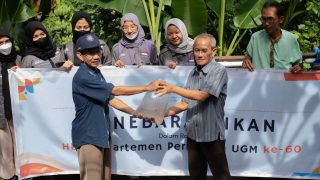
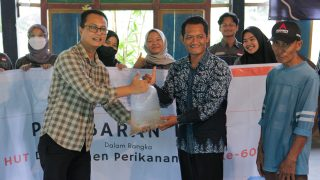
In Gunung Kidul Regency, one of the community service groups deployed there organized a counseling session on the quality and safety of fishery products. The sessions provided the local community with knowledge on identifying potential resources, maintaining quality, and properly processing fish to create economically and nutritionally valuable products. Featured products included processed dragon feet and fish sticks made from Mahi-Mahi fish sourced by fishermen from Nanas Hamlet. This collaborative program aims to enhance the quality of life for communities in underdeveloped, remote, and border areas (3T), particularly supporting coastal fishing groups.
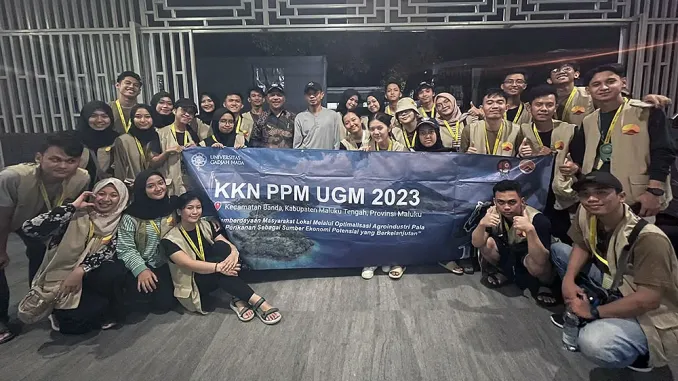
Also in Yogyakarta, the UGM Department of Fisheries deployed its students to conduct fish stocking activities in several rivers and ponds in the province. The activity aims to develop fisheries resources, namely increasing biodiversity, preserving local economic species, and realising the sustainability of fisheries and aquaculture management.
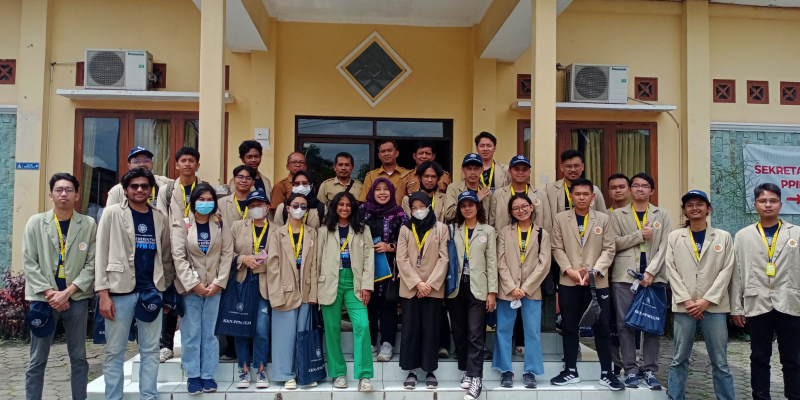
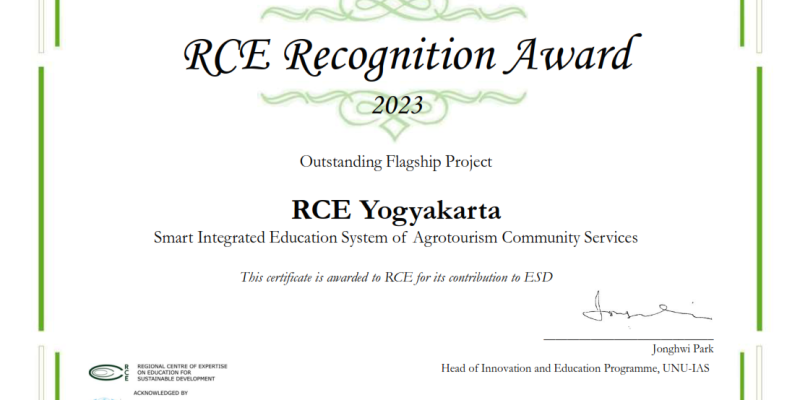
Another community service group in Gunung Kidul has launched the Smart Integrated Education System applied to agritourism development which seeks to leverage the potential of local communities through education and training programmes, community and stakeholder engagement, and innovative technologies. Additionally, the concept promotes awareness of conservation and the preservation of the environment and sustainable agriculture, benefiting both local communities and tourists. Recognizing the program’s remarkable contribution, Ganies Riza Aristya, Ph.D., the supervising lecturer of the program from the Faculty of Biology, was even awarded the Outstanding Flagship Project in the RCE Awards for Innovative Projects on Education for Sustainable Development (ESD) 2023.
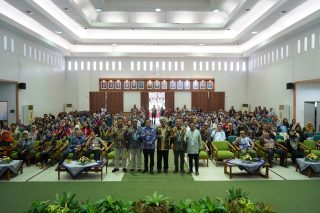
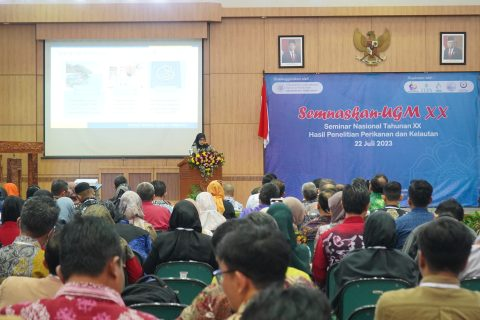
In the context of sustainable fisheries, UGM also holds seminars to disseminate knowledge, share research findings, and foster dialogue among academics, practitioners, policymakers, and local communities. These seminars aim to enhance community understanding of resource management and support capacity-building efforts for local and national stakeholders.
The Department of Fisheries, Faculty of Agriculture UGM organised the XX Annual National Seminar on Fisheries and Marine Research Results 2023 as a forum for academics, researchers, practitioners, and policymakers to present and share research findings in fisheries and marine sciences. This national seminar serves as a platform for disseminating research results, which is crucial for spreading information that can be applied to support sustainable fisheries.
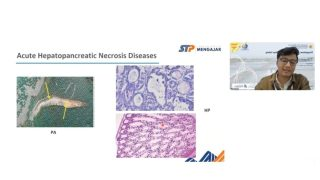
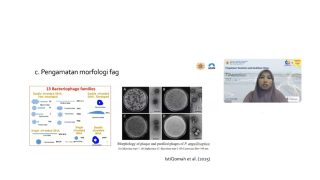
The UGM Department of Fisheries also held the SinnTech #16 webinar on Health Management in Shrimp Farming in collaboration with the Center for Seafood Security and Sustainability, supported by the Erasmus+ Programme of the European Union. Vaname shrimp (Litopenaues vannamei) farming is one of the fastest growing industries as a protein provider for the world community. Indonesia is the third largest shrimp production country globally, but several challenges reduce the productivity of vaname shrimp farming.

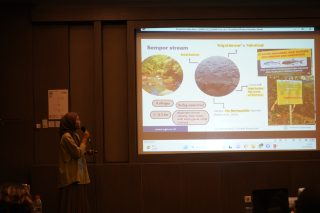
Within the same year, the Department of Fisheries hosted the prestigious 5th International Symposium on Marine and Fisheries Research (ISMFR) 2023, showcasing groundbreaking research under the theme “Sustainable Fisheries and Aquaculture for Global Food Resilience.” The symposium featured an impressive array of topics, including fisheries resource management, socioeconomics, oceanography, aquatic ecotoxicology, aquaculture, fish diseases, fish genetics, biotechnology, fishery product processing, and product safety. This global event drew participants from multiple countries—Indonesia, Malaysia, Japan, Thailand, and the United States—creating a vibrant platform for international collaboration and knowledge exchange in marine and fisheries sciences.
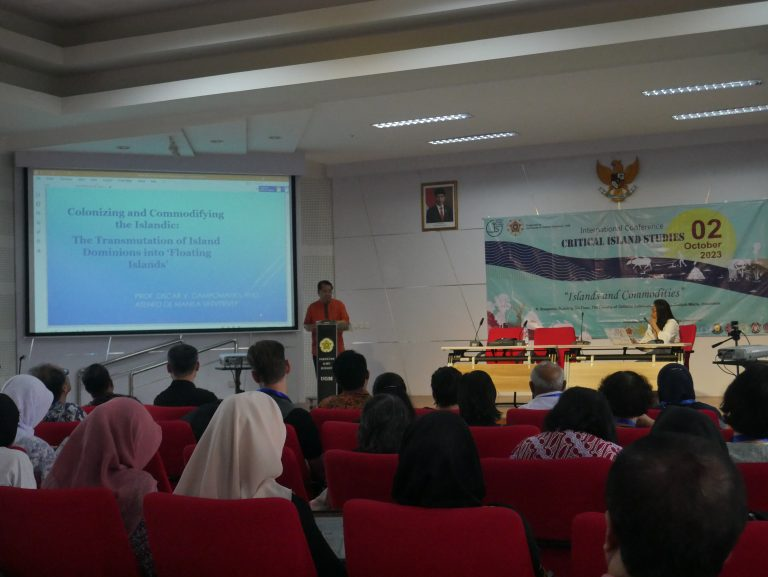
Conferences provide a structured setting for experts to present cutting-edge research and practical solutions in fisheries and aquaculture management. Through presentations, workshops, and panel discussions, attendees gain insights into sustainable methods and technologies that can be adapted to local contexts, enhancing the community’s ability to address ecological and economic challenges.
Universitas Gadjah Mada and 12 partner universities from across Indonesia, the Philippines, Japan, Australia, South Korea, China, the Netherlands, Taiwan, came together in the Critical Island Studies (CIS) conference on 2 October 2023 at the Faculty of Cultural Sciences UGM. This year’s Critical Island Studies conference is ‘Islands and Commodities’. The conference aims to address issues of equality and nature and align with the Sustainable Development Goals (SDGs). This event contributes to the discourse on sustainable fisheries by aligning with SDG 14, which focuses on the conservation and sustainable use of oceans, seas, and marine resources. The CIS conference explores the intersection of island ecosystems, commodities, and global processes, which directly relate to the sustainable management of marine resources.
References:
- the Fishery Product Technology Study Programme
- KKN PPM UGM in the Banda Islands of Central Maluku
- The UGM Fisheries Department conducted seed stocking activities in several rivers and ponds in Yogyakarta
- The Smart Integrated Education System
- XX 2023 Annual National Seminar as a Forum for Dissemination of Fisheries and Marine Results
- Department of Fisheries Holds Webinar with the Theme of Health Management in Shrimp Farming
- Department of Fisheries UGM Organises The 5th International Symposium on Marine and Fisheries Research (ISMFR) 2023
- Critical Island Studies (CIS)
